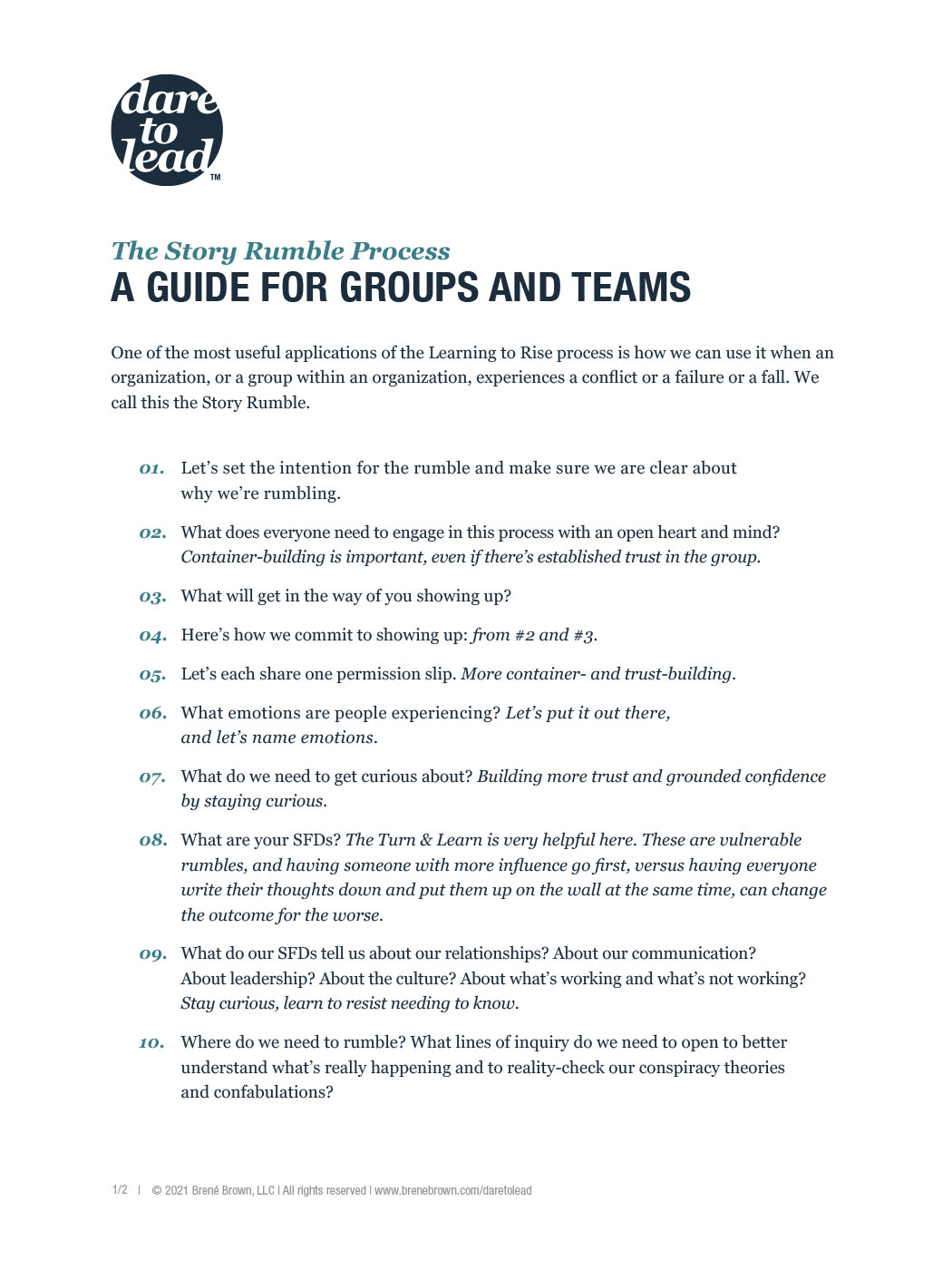
Dare to Lead
The Story Rumble Process: A Guide for Groups and Teams
One of the most useful applications of the Learning to Rise process is how we can use it when an organization, or a group within an organization, experiences a conflict or a failure or a fall. We call this the Story Rumble.
- Let’s set the intention for the rumble and make sure we are clear about
why we’re rumbling. - What does everyone need to engage in this process with an open heart and mind? Container-building is important, even if there’s established trust in the group.
- What will get in the way of you showing up?
- Here’s how we commit to showing up: from #2 and #3.
- Let’s each share one permission slip. More container- and trust-building.
- What emotions are people experiencing? Let’s put it out there,
and let’s name emotions. - What do we need to get curious about? Building more trust and grounded confidence by staying curious.
- What are your SFDs? The Turn & Learn is very helpful here. These are vulnerable rumbles, and having someone with more influence go first, versus having everyone write their thoughts down and put them up on the wall at the same time, can change the outcome for the worse.
- What do our SFDs tell us about our relationships? About our communication? About leadership? About the culture? About what’s working and what’s not working? Stay curious, learn to resist needing to know.
- Where do we need to rumble? What lines of inquiry do we need to open to better understand what’s really happening and to reality-check our conspiracy theories and confabulations?
- What’s the delta between those first SFDs and the new information we’re gathering in the rumble?
- What are the key learnings?
- How do we act on the key learnings?
- How do we integrate these key learnings into the culture and leverage them as we work on new strategies? What is one thing each of us will take responsibility for embedding?
- When is the circle-back? Let’s regroup so we can check back in and hold ourselves and one another accountable for learning and embedding.